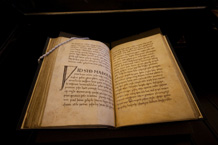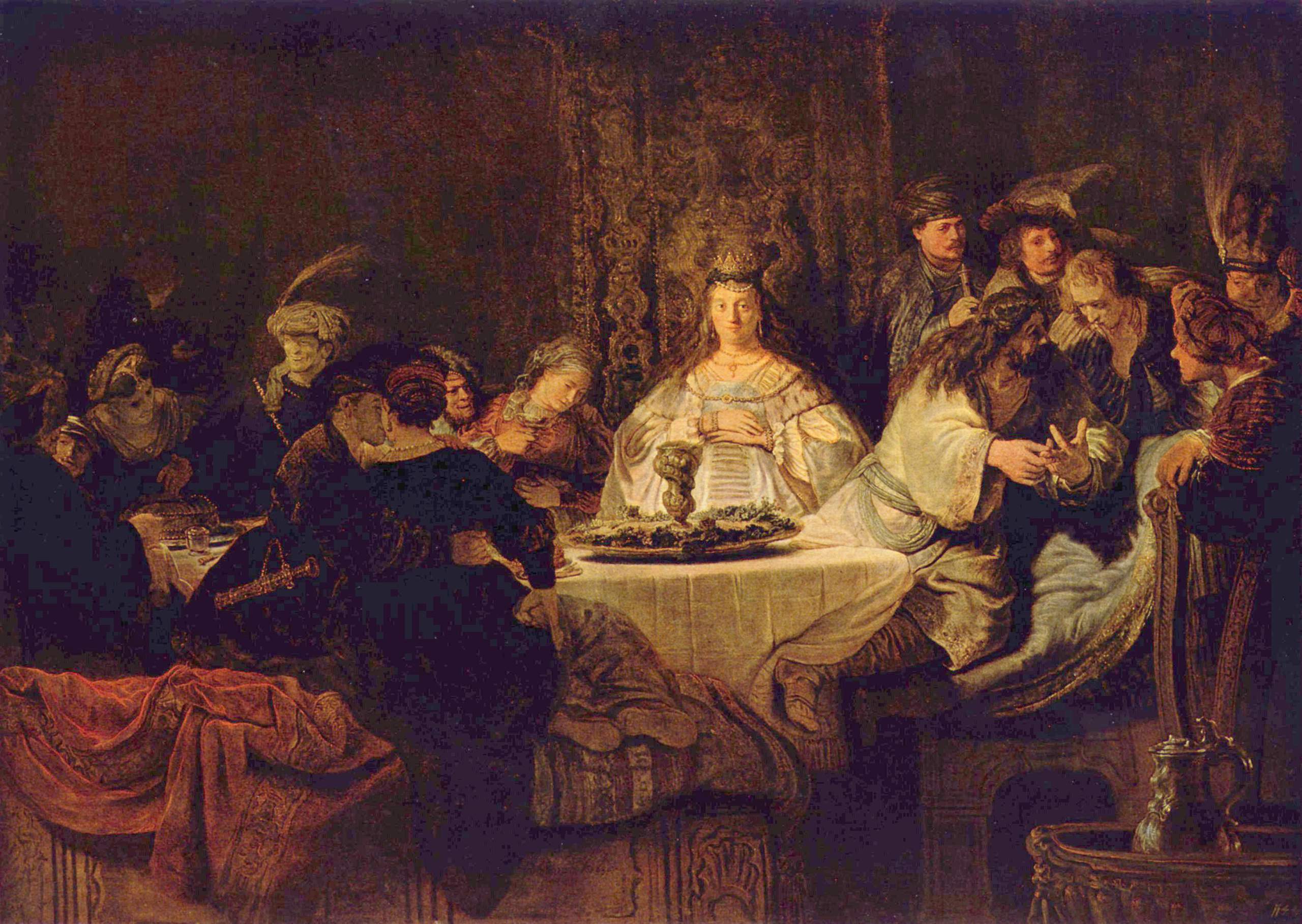|
Exeter Book Riddle 65
Exeter Book Riddle 65 (according to the numbering of the Anglo-Saxon Poetic Records)George Philip Krapp and Elliott Van Kirk Dobbie (eds), ''The Exeter Book'', The Anglo-Saxon Poetic Records, 3 (New York: Columbia University Press, 1936), http://ota.ox.ac.uk/desc/3009 . is one of the Old English Old English (, ), or Anglo-Saxon, is the earliest recorded form of the English language, spoken in England and southern and eastern Scotland in the early Middle Ages. It was brought to Great Britain by Anglo-Saxon settlement of Britain, Anglo ... riddles found in the later tenth-century Exeter Book. Suggested solutions have included Onion, Leek, and Chives, but the consensus is that the solution is Onion.Judy Kendall,Commentary for Riddle 65, ''The Riddle Ages'' (17 August 2017). Text and translation As edited by Krapp and Dobbie and translated by Andrew Higl, the riddle reads: Analogues The riddle is frequently compared with Exeter Book Riddle 25, also on the onion, but note ... [...More Info...] [...Related Items...] OR: [Wikipedia] [Google] [Baidu] |
Anglo-Saxon Poetic Records
The Anglo-Saxon Poetic Records (ASPR) is a six-volume edition intended at the time of its publication to encompass all known Old English poetry. Despite many subsequent editions of individual poems or collections, it has remained the standard reference work for scholarship in this field. History The edition was conceived by George Philip Krapp (1872–1934), who edited volumes 1, 2, and 5 while Professor of English at Columbia University, with the assistance of his student and colleague Elliott Van Kirk Dobbie. Krapp died partway through editing volume 3, and Dobbie completed this edition before going on to complete the series by editing volumes 6 (which came out in 1942) and 4 (which emerged in 1953).. According to Henry Wiggins, the long gap before the publication of Volume 4 was partly due to Elliott's feeling that there was no urgency about completing the ''Beowulf'' volume, because there were so many competent editions. The Press, like any publisher, was troubled about the abs ... [...More Info...] [...Related Items...] OR: [Wikipedia] [Google] [Baidu] |
Old English
Old English (, ), or Anglo-Saxon, is the earliest recorded form of the English language, spoken in England and southern and eastern Scotland in the early Middle Ages. It was brought to Great Britain by Anglo-Saxon settlement of Britain, Anglo-Saxon settlers in the mid-5th century, and the first Old English literature, Old English literary works date from the mid-7th century. After the Norman conquest of 1066, English was replaced, for a time, by Anglo-Norman language, Anglo-Norman (a langues d'oïl, relative of French) as the language of the upper classes. This is regarded as marking the end of the Old English era, since during this period the English language was heavily influenced by Anglo-Norman, developing into a phase known now as Middle English in England and Early Scots in Scotland. Old English developed from a set of Anglo-Frisian languages, Anglo-Frisian or Ingvaeonic dialects originally spoken by Germanic peoples, Germanic tribes traditionally known as the Angles, Sa ... [...More Info...] [...Related Items...] OR: [Wikipedia] [Google] [Baidu] |
Anglo-Saxon Riddles
Anglo-Saxon riddles are a significant genre of Anglo-Saxon literature. The riddle was a major, prestigious literary form in early medieval England, and riddles were written both in Latin and Old English verse. The pre-eminent composer of Latin riddles in early medieval England was Aldhelm (d. 709), while the Old English verse riddles found in the tenth-century Exeter Book include some of the most famous Old English poems. History Antique inspirations Riddles are an internationally widespread feature of oral literatures and scholars have not doubted that they were traditional to Old English culture. But the history of riddles as a literary genre in England seems to be rooted in an influential collection of late Antique Latin riddles, possibly from north Africa, attributed to a poet called Symphosius, whose work English scholars emulated and adapted. Aldhelm As the conversion of England to Christianity proceeded during the seventh century, Old English-speakers studied Latin ... [...More Info...] [...Related Items...] OR: [Wikipedia] [Google] [Baidu] |
Exeter Book
The Exeter Book, also known as the Codex Exoniensis or Exeter Cathedral Library MS 3501, is a large codex of Old English poetry, believed to have been produced in the late tenth century AD. It is one of the four major manuscripts of Old English poetry, along with the Vercelli Book in Vercelli, Italy, the Nowell Codex in the British Library, and the Junius manuscript in the Bodleian Library in Oxford. The book was donated to what is now the Exeter Cathedral library by Leofric, the first bishop of Exeter, in 1072. It is believed originally to have contained 130 or 131 leaves, of which the first 7 or 8 have been replaced with other leaves; the original first 8 leaves are lost. The Exeter Book is the largest and perhaps oldest known manuscript of Old English literature, containing about a sixth of the Old English poetry that has come down to us. In 2016, UNESCO recognized the book as "the foundation volume of English literature, one of the world's principal cultural artefa ... [...More Info...] [...Related Items...] OR: [Wikipedia] [Google] [Baidu] |
Exeter Book Riddle 25
Exeter Book Riddle 25 (according to the numbering of the Anglo-Saxon Poetic Records)George Philip Krapp and Elliott Van Kirk Dobbie (eds), ''The Exeter Book'', The Anglo-Saxon Poetic Records, 3 (New York: Columbia University Press, 1936), http://ota.ox.ac.uk/desc/3009 . is one of the Old English Old English (, ), or Anglo-Saxon, is the earliest recorded form of the English language, spoken in England and southern and eastern Scotland in the early Middle Ages. It was brought to Great Britain by Anglo-Saxon settlement of Britain, Anglo ... riddles found in the later tenth-century Exeter Book. Suggested solutions have included Hemp, Leek, Onion, Rosehip, Mustard and Phallus, but the consensus is that the solution is Onion.Megan Cavell,Commentary for Riddle 25, ''The Riddle Ages'' (3 July 2014). Text and translation As edited by Krapp and Dobbie and translated by Megan Cavell, the riddle reads: [...More Info...] [...Related Items...] OR: [Wikipedia] [Google] [Baidu] |
Symphosius
Symphosius (sometimes, in older scholarship and less properly, Symposius) was the author of the ''Aenigmata'', an influential collection of 100 Latin riddles, probably from the late antique period. They have been transmitted along with their solutions. Biography Nothing more is known of Symphosius's life than what can be gleaned from the riddles themselves: even his name is clearly 'a joking pseudonym, meaning “party boy” or the like'. Proposed dates of composition have ranged from the third century to the sixth. The prevailing view today is that they were probably composed in the late fourth or early fifth century. A range of circumstantial evidence in the content of the riddles suggests that Symphosius was writing in Roman North Africa. The riddles The riddles themselves, written in tercets of dactylic hexameters, are of elegant Latinity. The author's brief preface states that they were written to form part of the entertainment at the Saturnalia. This could be a literary co ... [...More Info...] [...Related Items...] OR: [Wikipedia] [Google] [Baidu] |
Riddles
A riddle is a statement, question or phrase having a double or veiled meaning, put forth as a puzzle to be solved. Riddles are of two types: ''enigmas'', which are problems generally expressed in metaphorical or allegorical language that require ingenuity and careful thinking for their solution, and ''conundra'', which are questions relying for their effects on punning in either the question or the answer. Archer Taylor says that "we can probably say that riddling is a universal art" and cites riddles from hundreds of different cultures including Finnish, Hungarian, American Indian, Chinese, Russian, Dutch and Filipino sources amongst many others. Many riddles and riddle-themes are internationally widespread. In the assessment of Elli Köngäs-Maranda (originally writing about Malaitian riddles, but with an insight that has been taken up more widely), whereas myths serve to encode and establish social norms, "riddles make a point of playing with conceptual boundaries and cross ... [...More Info...] [...Related Items...] OR: [Wikipedia] [Google] [Baidu] |
Old English Literature
Old English literature refers to poetry and prose written in Old English in early medieval England, from the 7th century to the decades after the Norman conquest of England, Norman Conquest of 1066, a period often termed Anglo-Saxon England. The 7th-century work ''Cædmon's Hymn'' is often considered as the oldest surviving poem in English, as it appears in an 8th-century copy of Bede's text, the ''Ecclesiastical History of the English People''. Poetry written in the mid 12th century represents some of the latest post-Norman examples of Old English. Adherence to the grammatical rules of Old English is largely inconsistent in 12th-century work, and by the 13th century the grammar and syntax of Old English had almost completely deteriorated, giving way to the much larger Middle English literature, Middle English corpus of literature. In descending order of quantity, Old English literature consists of: sermons and saints' lives; biblical translations; translated Latin works of the ... [...More Info...] [...Related Items...] OR: [Wikipedia] [Google] [Baidu] |




